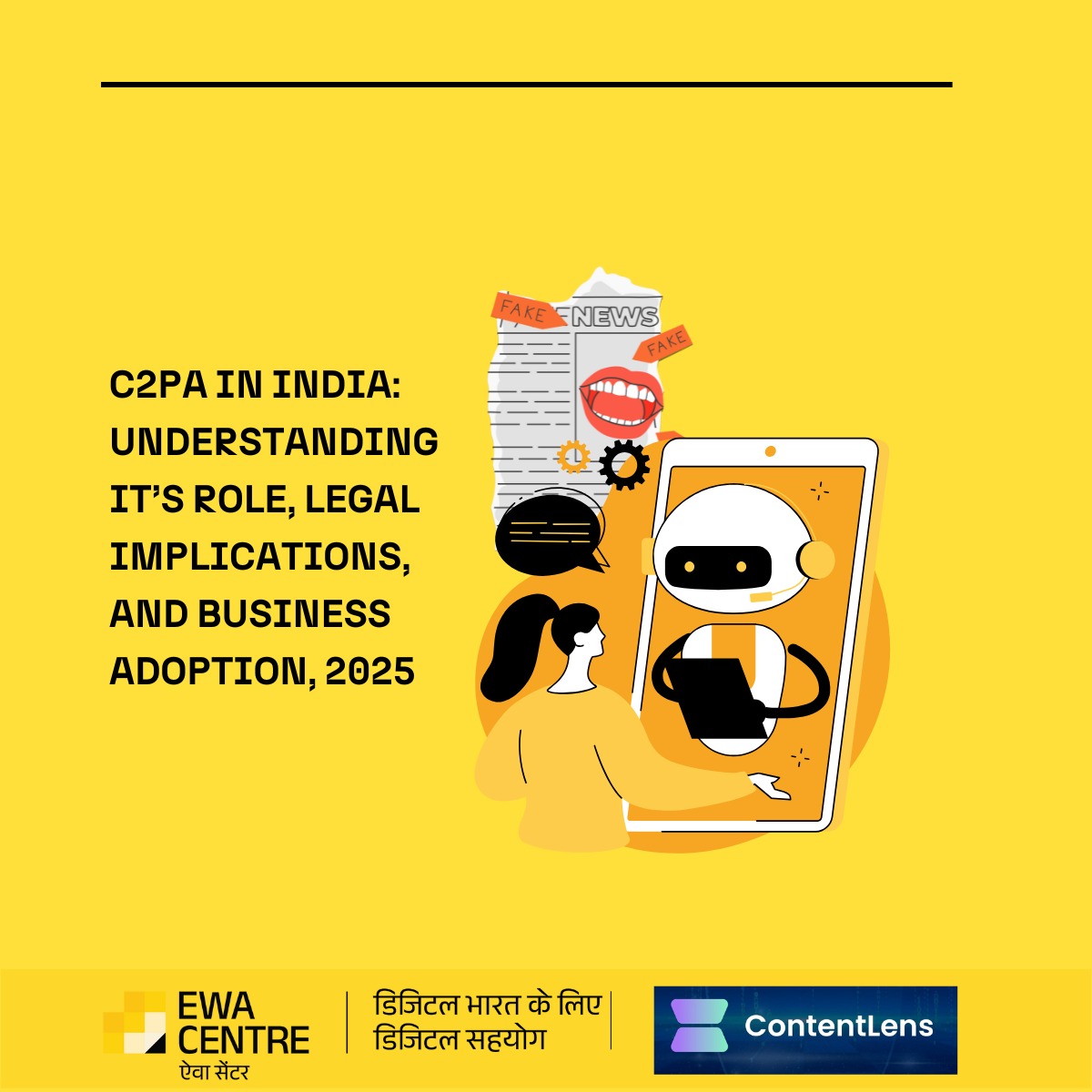In today’s digital age, misinformation and content manipulation have become global challenges, exacerbated by advancements in technology. In India, with its vast and diverse digital ecosystem, the spread of fake news, deepfakes, and altered media has grown exponentially. AI-generated misinformation and disinformation are considered to have become the 2nd biggest risk globally and the top risk in India in 2024. This has led to an urgent need for reliable mechanisms that can certify the authenticity and provenance of digital content, ensuring that users have the means to decide whether to trust the media they consume. It is important to remember that the Coalition for Content Provenance and Authenticity (C2PA) does not make a trust decision for the user. It simply provides relevant information to enable the user to decide on what is authentic and safe to view.
The C2PA is a global initiative developed by industry leaders like Adobe, Microsoft, and Intel. Over time, large market leaders like Google, Amazon, Sony, BBC, Meta, TikTok, Nikon, Canon, Fujifilm, and Logitech became members with a common global and industry-agnostic goal to support C2PA and incorporate content credentials. C2PA seeks to create a standard for certifying the origin, authenticity, and manipulation of digital content using cryptographically secure metadata attached to media files. Cryptographically secured metadata is additional information about provenance or history of creation, ownership, and usage rights embedded within or associated with media files such as images, audio, and video. This is crucial in communicating the verifiability and authenticity of the media file, to help stakeholders make a trust decision.
This white paper explores the implications of C2PA for India, analyzing its potential legal ramifications, applications for businesses, and how it can be integrated into industries ranging from media to e-commerce. This paper also addresses how C2PA can benefit specific groups such as online gamers, influencers, and social media stars while having a broader impact on the general public by reducing the spread of misinformation. Given the rising challenges of content manipulation, introducing C2PA in India could be a pivotal step towards a more secure, transparent, and reliable digital landscape. However, the adoption of such a standard will require awareness, legal alignment, and the active involvement of both private sector stakeholders and the government including the active participation of leading tech companies.

